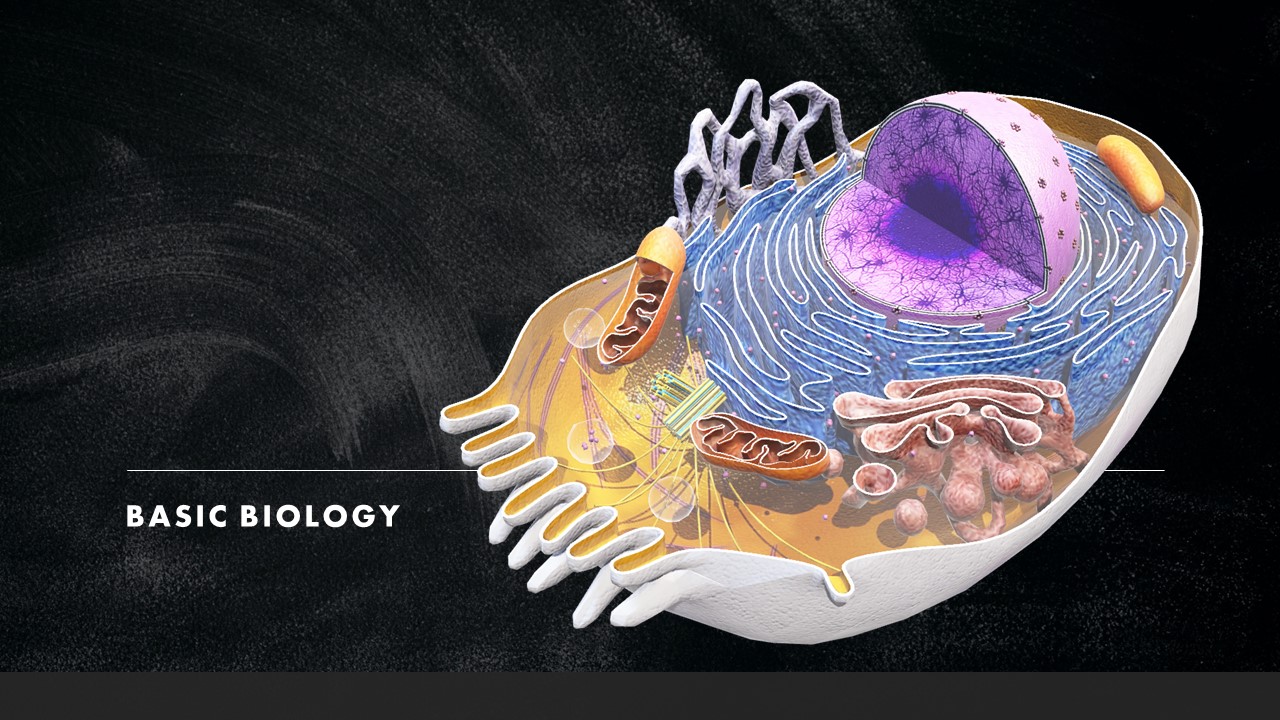Description
Types of Cell division
Cell division:
It is a process by which one single cell gives rise to two or more cells.
Cell division is of two types, namely:
Mitosis
meiosis
Mitosis:
In this, cell division leading to growth and development and seen in vegetative cells of the body.
During mitosis, the parent cell divides into two daughter cells, which are not only identical to each other but also to the parent cell. Mitosis is also known as equational division, as both the parent and the progeny cells have the same number of chromosomes.
Mitosis is divided into four stages of nuclear division, namely
Prophase.
Metaphase.
Anaphase.
Telophase.
The structure of Chromosomes
In the nucleus of each cell, the DNA molecule is packaged into thread-like structures called chromosomes. Each chromosome is made up of DNA tightly coiled many times around proteins called histones that support its structure.
Chromosomes are made of 50% proteins, and 50% DNA (deoxyribonucleic acid). Chromosomes are made of many chromatin threads, each containing DNA and proteins.
Somatic cells contain 46 chromosomes, gametic cells contain 23 chromosomes.44 of our chromosomes are AUTOSOMES, while 2 are called sex chromosomes. Each chromosome contains many GENES that act as a blueprint or set of instructions for the cell.
Free
Free
Free access this course
-
LevelIntermediate
-
Total Enrolled3
-
Last UpdatedJanuary 22, 2025
Hi, Welcome back!
Material Includes
- 🔥 Live Interactive classes with in-class doubt solving
- ⭐ Weekly Test and Quiz with instant tracking for progress
- ⚙️ Revision of the course after testing
- 👋 Fortnightly Parents and Tutor interactions
- 🌷 Expert monitoring of student's learning progress
- 👨👩👧👧 Daily communication over call, whatsapp and mail
- 💻3 hours on-demand video
- ✍4 downloadable resources
- ⌛Access for entire Academic Year
- 📱Access on mobile and Desktop
- 📋Assignments and review of the same
- 💡Tests and Correction by Board paper checkers
- 🏅Certificate of completion and Live tracking with Grade book
Course Duration:
0
Course level:Intermediate
Enrolled:3
About Course
In this section will the following chapters:
1.Cell Cycle and Cell Division
2.Structure of chromosome
3.Genetics
Course Curriculum
TYPES OF CELL DIVISION – CELL, CELL CYCLE AND CELL DIVISION
-
[PHYSICAL] [SNEH] CELL – INTRODUCTION TO CHROMOSOMES
22:37 -
[PHYSICAL] [KHUSHBOO] CELL – CELL CYCLE, CELL DIVISION – CORE CONCEPT – WHY DO WE NEED CELLS?
05:43 -
[PHYSICAL] [SNEH] CELL – CELL CYCLE PHASES
07:28 -
[PHYSICAL] [SNEH] CELL – MITOSIS AND MEOSIS
23:23 -
[PHYSICAL] [SNEH] CELL – INTRODUCTION TO CELL
07:52 -
[PHYSICAL] [SNEH] CELL – PHYSICAL CLASS – GAMETES OR SEX CELLS
04:16 -
[PHYSICAL] [KHUSHBOO] CELL CELL CYCLE AND CELL DIVISION – CORE CONCEPT – MITOSIS
16:42 -
[PHYSICAL] [KHUSHBOO] CELL, CELL CYCLE AND CELL DIVISION – SUPPORT MATERIAL – STRUCTURE OF CELL
04:00
STRUCTURE OF CHROMOSOMES – CHROMOSOMES
-
[PHYSICAL] [SNEH] CELL – INTRODUCTION TO CHROMOSOMES
22:37 -
[PHYSICAL] [KHUSHBOO] STRUCTURE OF CHROMOSOMES – SUPPORT MATERIAL – STRUCTURE OF CHROMOSOME
04:00 -
[PHYSICAL] [KHUSHBOO] STRUCTURE OF CHROMOSOME – SUPPORT MATERIAL – REPRODUCTION
06:00
GENETICS – INTRODUCTION TO GENETICS
-
[PHYSICAL] [KHUSHBOO] GENETICS – SUPPORT MATERIAL – INTRODUCTION
01:01 -
[PHYSICAL] [SNEH] GENETICS – BODY CELL AND SEX CEL
10:05 -
[PHYSICAL] [SNEH] GENETICS – BLOOD GROUP
17:36 -
[PHYSICAL] [SNEH] GENETICS – CHARACTER OF TRAIT
23:23 -
[PHYSICAL] [SNEH] GENETICS- BASIC FUNDAMENTS
14:15 -
[PHYSICAL] [SNEH] GENETICS – PART- I
23:23 -
[PHYSICAL] [SNEH] GENETICS – PART- II
20:35 -
[PHYSICAL] [SNEH] GENETICS – PEDIGREE ANALYSIS, CHARACTER TRAITS
21:44
GENETICS – GENOTYPE AND PHENOTYPE
-
[PHYSICAL] [SNEH] GENETICS – CELL MEMBRANE
06:44 -
[PHYSICAL] [SNEH] GENETICS – GENOTYPE AND PHENOTYPE
19:45 -
[PHYSICAL] [SNEH] GENETICS – RECAP
20:02 -
[PHYSICAL] [SNEH] GENETICS – SEX – LINKED HERITAGE
27:41 -
[PHYSICAL] [SNEH] GENETICS – PART – I
19:07 -
[PHYSICAL] [SNEH] GENETICS – PART- II
12:29 -
[PHYSICAL] [SNEH] GENETICS – PHYSICAL CLASS – PART – III
15:28 -
[PHYSICAL] [SNEH] GENETICS – PART – I
-
[PHYSICAL] [SNEH] GENETICS – PART – II
09:39 -
[PHYSICAL] [SNEH] GENETICS – PART – III
15:06
HEART
-
[PHYSICAL] [SNEH] CIRCULATORY SYSTEM – BLOOD GROUP
18:07 -
[PHYSICAL] [SNEH] CIRCULATORY SYSTEM – HEART
17:31 -
[PHYSICAL] [SNEH] CIRCULATORY SYSTEM – SCHEMATIC DIAGRAM OF A HEART
15:50 -
[PHYSICAL] [SNEH] CIRCULATORY SYSTEM – CORONARY ARTERY
12:17 -
[PHYSICAL] [SNEH] HUMAN CIRCULATORY SYSTEM
04:49 -
[PHYSICAL] [SNEH] HOW DOES HUMAN CIRCULATORY SYSTEM WORK
02:18 -
[PHYSICAL] [SNEH] CIRCULATORY SYSTEM – CIRCULATION OF BLOOD
17:21 -
[PHYSICAL] [SNEH] CIRCULATORY SYSTEM – PULMONARY CIRCULATION
14:17 -
[PHYSICAL] [SNEH] CIRCULATORY SYSTEM – HEART BEAT
06:14
ADDITIONAL MATERIAL
-
[PHYSICAL] [KHUSHBOO] STRUCTURE OF A CELL – CORE CONCEPT – INTRODUCTION TO CELL
03:16 -
[PHYSICAL] [KHUSHBOO] STRUCTURE OF A CELL – SUPPORT MATERIAL – STRUCTURAL AND FUNCTIONAL UNIT OF LIFE
00:56 -
[PHYSICAL] [KHUSHBOO] STRUCTURE OF A CELL – CORE CONCEPT – CELL SHAPES TO SUIT FUNCTIONAL REQUIREMENT
01:30 -
[PHYSICAL] [KHUSHBOO] STRUCTURE OF A CELL – CORE CONCEPT – STRUCTURE OF CELL AND CELL ORGANELLES
02:34 -
[PHYSICAL] [KHUSHBOO] STRUCTURE OF A CELL – CORE CONCEPT – CELL MEMBRANE , CELL WALL
02:41 -
[PHYSICAL] [KHUSHBOO] STRUCTURE OF A CELL – CORE CONCEPT- CYTOPLASM
00:47 -
[PHYSICAL] [KHUSHBOO] STRUCTURE OF A CELL – CORE CONCEPT – NUCLEUS, NUCLEOLUS AND CHROMATIN FIBERS
03:37 -
[PHYSICAL] [KHUSHBOO] STRUCTURE OF A CELL – CORE CONCEPT – ENDOPLASMIC RETICULUM AND RIBOSOMES
04:24 -
[PHYSICAL] [KHUSHBOO] STRUCTURE OF A CELL – SUPPORT CONTENT – CELL DIVERSITY
01:59 -
[PHYSICAL] [KHUSHBOO] STRUCTURE OF A CELL – SUPPORT MATERIAL – EUKARYOTIC CELL
00:42 -
[PHYSICAL] [KHUSHBOO] STRUCTURE OF A CELL – CORE CONCEPT- MITOCHONDRIA
02:36 -
[PHYSICAL] [KHUSHBOO] STRUCTURE OF A CELL – CORE CONCEPT – GOLGI APPARATUS
01:18 -
[PHYSICAL] [KHUSHBOO] STRUCTURE OF A CELL – CORE CONCEPT – LYSOSOMES
01:16 -
[PHYSICAL] [KHUSHBOO] STRUCTURE OF A CELL – CORE CONCEPT – PLASTIDS
01:13 -
[PHYSICAL] [KHUSHBOO] STRUCTURE OF A CELL – CORE CONCEPT – VACUOLE
01:41 -
[PHYSICAL] [KHUSHBOO] STRUCTURE OF A CELL – CORE CONCEPT – CENTROSOME
02:22 -
[PHYSICAL] [KHUSHBOO] STRUCTURE OF A CELL – CORE CONCEPT – STRUCTURE OF THE CELL AT A GLANCE
02:56 -
[PHYSICAL] [KHUSHBOO] STRUCTURE OF A CELL – CORE CONCEPT – PROTOPLASM AND EUKARYOTIC AND PROKARYOTIC CELLS
03:55 -
[PHYSICAL] [KHUSHBOO] STRUCTURE OF A CELL – CORE CONCEPT – PLANT AND ANIMAL CELL LABELLED
00:43 -
[PHYSICAL] [KHUSHBOO] STRUCTURE OF A CELL – CORE CONCEPT – EVERY ACTIVITY IS AN OUTCOME OF CELLULAR ACTIVITY
04:48 -
[PHYSICAL] [KHUSHBOO] STRUCTURE OF A CELL – SUPPORT MATERIAL – ALL CELL ORGANELLES RECAP
03:14 -
[PHYSICAL] [KHUSHBOO] STRUCTURE OF A CELL – SUPPORT MATERIAL – STRUCTURE OF CELL
00:28 -
[PHYSICAL] [SNEH] GENETICS – INTRODUCTION TO GENETICS
08:26 -
[PHYSICAL] [KHUSHBOO] GENETICS – SUPPORT MATERIAL – MENDELS THREE LAWS
04:00 -
[PHYSICAL] [KHUSHBOO] GENETICS – SUPPORT MATERIAL – GENOTYPES AND PHENOTYPES
05:00 -
[PHYSICAL] [KHUSHBOO] THE CELL – SUPPORT MATERIAL – MITOSIS AND MEIOSIS
06:00
ASSIGNMENT AND DUE DATE
Student Ratings & Reviews

No Review Yet


